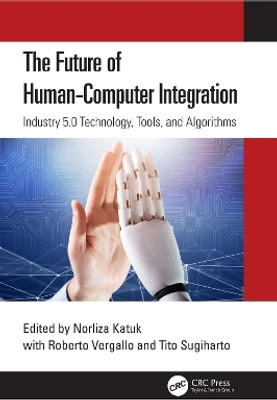The Future of Human-Computer Integration(English, Paperback, unknown)
Quick Overview
Product Price Comparison
The Future of Human-Computer Integration: Industry 5.0 Technology, Tools, and Algorithms provides a valuable insight into how Industry 5.0 technologies, tools, and algorithms can revolutionise industries and drive innovation. By emphasising the convergence of computer technology and human interaction, readers will learn the concepts of Industry 5.0, from the fundamentals to advanced techniques, with real-world examples and case studies in different industry sectors. The authors equip readers with the knowledge to mitigate risks to ensure success in this complex human and computer synchronisation in the era of Industry 5.0. This collection of writings by experts in their respective fields invites readers to journey through the transition from Industry 4.0 to Industry 5.0. Practical insights are offered alongside cutting-edge applications, such as blockchain, the Internet of Things (IoT), QR code, and augmented reality (AR), as well as the consideration of privacy, trust, and authentication through digital signatures. Such technologies and applications hold much promise to revolutionise industries and drive innovation. Topics in this book include the role of AI in human-computer interaction, efficient asset management using blockchain, computational thinking in program development, synergy of 5G and IoT in healthcare services, advances in increasing data capacity of QR codes, and personalised user experience with augmented reality. The authors also consider the challenges, risks, and concerns of such technologies and their applications in Industry 5.0. This book comprehensively explores Industry 5.0 from a computer science perspective as it delves into the technology aspects and tools for Industry 5.0. It offers readers a detailed understanding of how computer science intersects with Industry 5.0, how to humanise it, and its application to industry. This book has been written for technology professionals and practitioners, especially ones in healthcare, smart systems, and the oil and gas sectors. It will serve as a useful reference for students studying such advanced courses as digital technology, digital transformation, emergent technologies, and innovation through new technologies.


